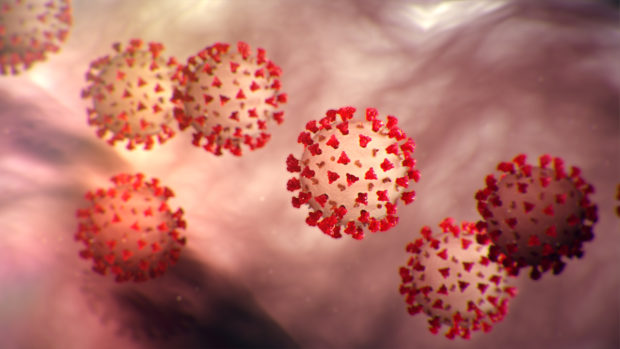
COVID-19 patients can be categorised into three groups, say scientists
Team Udayavani, Apr 4, 2021, 10:33 AM IST

Washington: Scientists have identified three different types of COVID-19 disease traits in patients, depending on their comorbidities, complications, and clinical outcomes, an advance that may help target future interventions to the most risk-prone individuals.
The new study, published in the journal PLOS ONE, analysed the electronic health records (EHRs) from 14 hospitals in the midwestern US and from 60 primary care clinics in the state of Minnesota.
According to the researchers, including those from the University of Minnesota in the US, the study included 7,538 patients with confirmed COVID-19 between March 7 and August 25, 2020, of which 1,022 patients required hospitalisation.
Close to 60 per cent of the patients included in the research presented with what the researchers called “phenotype II.”
They said about 23 per cent of the patients presented with “phenotype I,” or the “adverse phenotype,” which was associated with the worst clinical outcomes.
The researchers said these patients had the highest level of comorbidies related to heart and kidney dysfunction.
According to the study, 173 patients, or 16.9 per cent presented with “phenotype III,” or the “favorable phenotype,” which the scientists said was associated with the best clinical outcomes.
While this group had the lowest complication rate and mortality, the scientists said these patients had the highest rate of respiratory comorbidities as well as a 10 per cent greater risk of hospital readmission compared to the other phenotypes.
Overall, they said phenotypes I and II were associated with 7.30-fold and 2.57-fold increases in hazard of death relative to phenotype III.
Based on the results, the scientists said such phenotype-specific medical care could improve COVID-19 outcomes.
However, they believe further studies are needed to determine the utility of these findings in clinical practice.
“Patients do not suffer from COVID-19 in a uniform matter. By identifying similarly affected groups, we not only improve our understanding of the disease process, but this enables us to precisely target future interventions to the highest risk patients,” the scientists added.
Udayavani is now on Telegram. Click here to join our channel and stay updated with the latest news.
Top News

Related Articles More

Plant-based meat alternatives linked to increased risk of depression in vegetarians, study finds

Lung transplant at right time only cure for idiopathic pulmonary fibrosis that killed Ustad Zakir Hussain

ICMR sets up India’s first diabetes biobank in Chennai

AI Meets Health: The Rise of Smart Fitness Solutions

New study links paracetamol to side effects in digestive tract, heart, kidneys among older adults
MUST WATCH
Latest Additions

Mannagudda: Junk car parking causes inconvenience for public

Shabana Azmi criticises media over coverage on Zakir Hussain’s death: ‘What is this rush’

Mangaluru: Proposal to rename roads and circles; Objections and suggestions invited

No provision of free travel for Maha Kumbh Mela: Railways

Mangaluru: Chemotherapy services to begin soon at Wenlock Hospital
Thanks for visiting Udayavani
You seem to have an Ad Blocker on.
To continue reading, please turn it off or whitelist Udayavani.




















